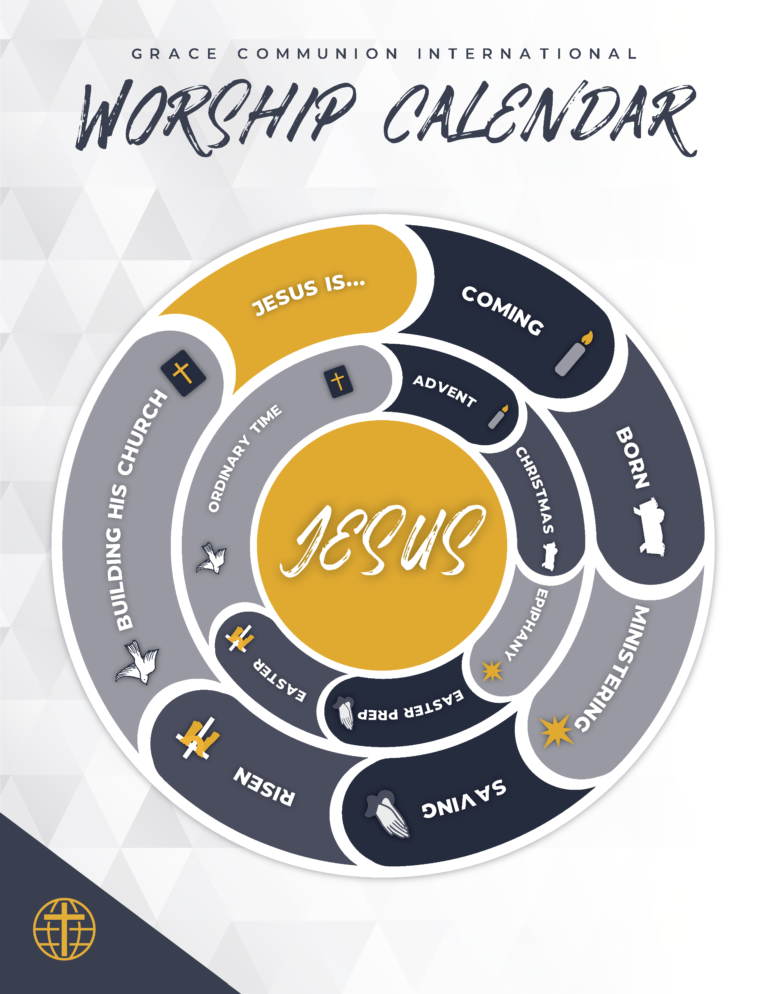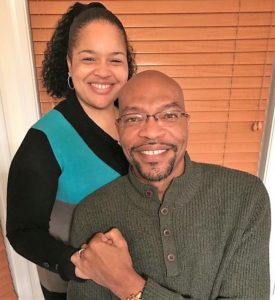Speaking Of Life 2047 | Whose Likeness
We are created in the image and likeness of our God. May we bear the resemblance of our Creator in our daily encounters, trusting him to mold and transform us through the Holy Spirit. Whose image and likeness do you bear?
Speaking Of Life 2047 | Whose Likeness
Greg Williams
This is the coin in use around the time of Christ. Look closely at it and you see a major problem for the Jews of the day. The inscription reads: “Caesar Augustus Tiberius, son of the Divine Augustus.” This puts Caesar in a divine place, which—in the Jewish and Christian mind—could only be occupied by God. According to the scribes, to own and handle this coin was a violation of the first commandment.
The moneychangers in the famous temple cleansing were changing blasphemous Roman coins for those which would have been acceptable for use in the temple. When Jesus asked to see the coin in Matthew 22:19, he exposed the fact that they all carried the Roman coins on them because they had to.
He then asks his famous question as they look on the coin in verse 20: “Whose likeness and inscription is this?”. They answer that its Caesar’s and he diffuses the tense conversation: “Give to Caesar what is Caesar’s, and to God what is God’s.”
Matthew writes this with a wink toward Genesis 1:26, “Let us make humans in our likeness.” That Greek word for “likeness” is the same in both places.
The question behind the question is this: whose likeness is stamped on you? Whose image and likeness do you bear? So yes, we do “render to Caesar” our taxes; property tax, federal tax, state tax, sales tax, etc. but we are to give—or render—ourselves unto God, whose likeness we bear. What does that mean?
Part of that rendering or not rendering hinges on where we place our trust. Do we place our trust in Caesar—government—realizing there is no perfect, complete form of government—or anything or anyone—on earth? No, we know we cannot trust in a government to bring in “heaven on earth.”
Only God can forgive us, save us, redeem us, and shape us. His is the likeness we bear, and through the power of the Spirit, we are continuing to be transformed into his image.
I’m Greg Williams Speaking of Life.
Psalm 99:1-9 • Exodus 33:12-23 • 1 Thessalonians 1:1-10 • Matthew 22:15-22
This week’s theme is God’s glory goes with us. In Exodus 33, Moses asks God to send his glory with Israel and then to show Moses his glory. Psalm 99, this week’s call to worship, is a historical poem of God’s glory going with them through the desert as a pillar of cloud. Matthew 22 tells about Jesus’ confrontation with the Pharisees overpaying taxes and Jesus reminds us that God’s imprint is on us, so we belong to him. Our sermon is based on 1 Thessalonians 1, in which Paul talks about God’s glorious transformation of us and the life he has called us to live in response.
Paul’s Three-Dimensional Witness
1 Thessalonians 1:1-10
Have you ever had a mentor? A person in your life who sat with you and walked you patiently through learning something they themselves already knew very well? Most of us don’t have to look too far in our own history to find that coach, pastor, boss, older cousin or whoever it was who taught us how to pick up a skill, but more importantly how to live life.
How did that mentor approach you? Were they careful, calm, and patient? The ones we remember usually are. We can also remember the abusive, driving bosses and authority figures, but we wouldn’t usually call them mentors.

Discuss a mentor who was important to you and took time to teach you patiently, even while holding high expectations. Do you know someone who gave you high support, high challenge, and grace always? This could be an interesting discussion, depending on the size of your fellowship.
Paul approached this fledgling church in Thessalonica as a loving mentor. That’s one of the main themes that threads through this introductory section: he loves them dearly and is praising the progress they’ve made.
We often think of Paul as a bit of a fighter, often speaking the voice of rebuking and correction rather than consolation. We’re used to his near-violent rebuke of the false teachers who are trying to infiltrate his communities and undermine the high standards he lives by and expects of those he’s been ministering too.
But Thessalonians shows us a different side of Paul, which I think is probably the side he prefers to live in if he can. He starts this letter with gentle praise and great love.
Read 1 Thessalonians 1:1-10
Let’s look at three points Paul makes in this passage. He talks about:
- Identity
- Imitation
- Imminence
Identity
We give thanks to God always for all of you, constantly mentioning you in our prayers, remembering before our God and Father your work of faith and labor of love and steadfastness of hope in our Lord Jesus Christ. (1 Thessalonians 1:2-3 ESV)
This sounds like a normal and warm greeting, but then as you read the letter, you might wonder about Paul. The letter was written to people who are preaching other doctrines and preaching against Paul. They lived in a promiscuous culture, and men were free to engage in sexual activity with almost no boundaries. Their theology is messed up—seemingly inserting different gods into their daily lives. Yet Paul praised them for their work of faith, labor of love and steadfastness of hope.
Let’s keep in mind that for the Jewish believers, the gospel was completely scandalous. We know from Acts 17 that the members of the Jewish community in Thessalonica followed Paul to the next town where he ministered so they could start a riot and endanger his life!
The believers in Thessalonica had bad theology, bad morality, and a distorted opinion of Paul. Yet, Paul is thankful because of what he’s heard about their faith and growth in Christ. He’s thankful because of their growth, not their perfection.
Every 12-step meeting you go to you will hear the phrase: “We claim spiritual progress rather than spiritual perfection.” That’s where Paul meets this community—I’m so thankful for you! I hear such good things about you! You are following Christ; you know who you are.
He thanks God for them and reminds them who they are.
For we know, brothers loved by God, that he has chosen you, because our gospel came to you not only in word, but also in power and in the Holy Spirit and with full conviction. (1 Thessalonians 1:4-5 ESV)
He comes in as the loving mentor here, starting with genuine praise and joy in the progress this community is making. The smoldering wicks and bruised reeds abound here—Greeks just in from their licentious religious life, Jews who’ve been rejected by their community for their newfound faith.
Paul gently blows on the embers of their faith, encouraging them to continue. Not to be perfect, just to keep going, to know their identity in Christ.
Have you ever had someone encourage you like that? (Take a moment to think about this and say a short prayer of praise to God for bringing that person into your life.) Is there someone in our lives that we need to encourage in this gentle way—meeting them where they are?
Imitation
You know what kind of men we proved to be among you for your sake. And you became imitators of us and of the Lord, for you received the word in much affliction, with the joy of the Holy Spirit, so that you became an example to all the believers in Macedonia and in Achaia. (1 Thessalonians 1:5-7 ESV)
As new Christians, this community was an unheard-of blend of Jews and Greeks worshipping in the same house. For the Jews, the theology of Christ was a scandal. For the Greeks, the moral demands of this new faith were a scandal. Both people groups had been broken out of their background and community.
Think of walking into a new school or job or culture. You’re disoriented and don’t know what to do. You can research online before you get there—read, download articles—but when you get there it’s like a bucket of cold water to the face.
Your first instinct is to imitate. Look around, see what other people are doing. No one was more disoriented than Paul. He was a model Israelite, even to the degree of killing people of this new Jesus cult. Then he’s miraculously converted, losing every point of reference he has, and he is called to associate with Gentiles, whom he had looked down on his whole life.
In a matter of a few years, he lost every coordinate he’d ever known. He can easily relate to people who are coming into the church and are disoriented by the social differences. More than anyone, he can say: “If you’re a little lost, I’ll show you the ropes!”
Imitation. One of the most important parts of mentoring. We learned from what our mentors did more than what they said—we watched and mimicked.
Paul can confidently say: you watched us live this Jesus life. You saw our integrity, love, boldness and joy. He was a three-dimensional witness to them. He didn’t put on a church face or a church act, but he lived alongside them.
That, brothers and sisters, is our greatest witness. That is fulfilling the new commandment to love as Jesus loves. We are called to present not just a theology or a belief system, but a life worth imitating.
There’s a fun story of Billy Graham, a devotee both of Christ and golf. He went on celebrity golf tours and had plenty of pictures of himself swinging as well as preaching.
On one private golf outing, the caddy didn’t know who he was. Billy got off to a rough start and maxed out on strokes on the first hole. The caddy, used to hearing a loud chorus of profanity and abuse when this happened, was surprised to see this golfer just quietly keep playing.
Finally, he asked, “So are you some sort of preacher or something?”
Billy casually said, “Yeah. I’m sort of a preacher.”
Maybe a silly example, but an exchange someone wrote about decades later! Billy Graham, the most famous pastor in the world, quietly practiced what he preached. He didn’t claim who he was and then put on his perfect face. He lived with the gentleness and self-control of the Spirit because that’s who he was!
So, Paul is able to confidently say, “You saw our witness in 3-D. We were there with you. You’ve seen how this plays out.” Further, he praises them because their example inspired others to imitate them.
For not only has the word of the Lord sounded forth from you in Macedonia and Achaia, but your faith in God has gone forth everywhere, so that we need not say anything. For they themselves report concerning us the kind of reception we had among you, and how you turned to God from idols to serve the living and true God… (1 Thessalonians 1:8-9 ESV)
Imminence
… and to wait for his Son from heaven, whom he raised from the dead, Jesus who delivers us from the wrath to come. (1 Thessalonians 1:10 ESV)
Imminence is a five-dollar word to describe the very-soon coming of Christ. Christ is coming imminently; he will be here soon. Paul taught that Christ had come to begin the kingdom and he would come back someday to finally establish it.
But the issue became, as you can see later in the Thessalonian letters, that people really liked the idea of escaping the world when Christ came. They thought: Great, now we don’t have to work or pay back our credit cards or figure out our various church tension issues—Jesus will be back any time now!
People had quit working and otherwise looking after their living, and Paul was explicit in his correction. To know Christ isn’t just to have some kind of apocalypse insurance or escape hatch, it’s not to be in the “in crowd” and give up on the difficult journey of being human. To know Christ was to have a new kind of life.
To know Christ isn’t to escape life, but to fully live it.
To jump ahead, Paul lays out that life for them later in this letter:
And to aspire to live quietly, and to mind your own affairs, and to work with your hands, as we instructed you, so that you may walk properly before outsiders and be dependent on no one. (1 Thessalonians 4:11-12 ESV)
This is not some kind of picture of an elitist cult hiding away until the end, nor a caustic band of doomsayers cursing the world. This is a life very much in the world, living in the simplicity of confidence in who the true Lord of the world really is.
- Because we believe the return of Christ is imminent, so we live life fully today.
- Because we are in touch with the Creator, we can fully enjoy the creation as it was meant to be enjoyed—with all the good foods and good relationships that it includes.
- Because we know the Redeemer, we can live as redeemed people, sharing that grace and believing that those who are counted lost can be restored.
- Because we know love, we can show love.
So today, let your witness be three-dimensional, showing grace to those who are growing and an attractive love to those who don’t know Christ yet.
To recap:
Identity: Paul rejoices because of this church’s fledgling growth—as misdirected and imperfect as it is. Christ rejoices that we are identified by him and celebrates our growth even though he knows our confused and misguided hearts.
Imitation: Let’s live the gospel just as much, if not more so, than sharing it verbally. May people see us as Christ-followers before we even have a chance to tell them we are.
Imminence: To know Christ is to be fully and wholly human, to live our daily lives in a way that shines his glory while drawing on his strength.
Questions for Speaking of Life:
- Our Speaking of Life episode focused on the conversation between Jesus and the Pharisees about taxes (render unto Caesar). What does it mean in our normal 21st century lives to render to Caesar and render unto God?
- God’s likeness is stamped on us, just as Caesar’s likeness was stamped on these coins. What does it mean to be made in God’s image and likeness? Does that change our understanding of God and ourselves?
Questions for sermon:
- Have you ever had a mentor who changed your life? Did they strike the balance between graceful encouragement and high standards?
- The Thessalonian believers had had to make a break with culture and heritage to embrace their identity in Christ (see v. 9). Have you ever had to make a similar change in thinking/direction? What were the results?
- Because we know where history is going, we can live more fully and joyously in the present (see John 10:10). Is this your experience of the Christian life? Why or why not?
Quote to ponder: “This sense of being made in God’s image calls us all constantly to look for it in others and to do what we can to help them acknowledge it and to realize it by joining in worship. We thereby carry to others the answer to their inmost longing, a yearning for union with the Trinity, a thirst to respond with adoration to the God who made them.” ~~Marva Dawn, theologian and professor









 “God doesn’t waste anything. It is not that no one will be touched by you being “led by the Spirit.” Because he uses us, he knows we are dust. And he is loving and kind to us. But I think that he takes a lot of time showing us that he is a preparatory God. He is a God who prepares. So we want to take the time to emulate our God. We want to imitate his ways. … From the beginning of time, it is laid out for us that preparation is vital. Preparation during the week, you are taking your time to hear what the Lord wants to say.
“God doesn’t waste anything. It is not that no one will be touched by you being “led by the Spirit.” Because he uses us, he knows we are dust. And he is loving and kind to us. But I think that he takes a lot of time showing us that he is a preparatory God. He is a God who prepares. So we want to take the time to emulate our God. We want to imitate his ways. … From the beginning of time, it is laid out for us that preparation is vital. Preparation during the week, you are taking your time to hear what the Lord wants to say.


